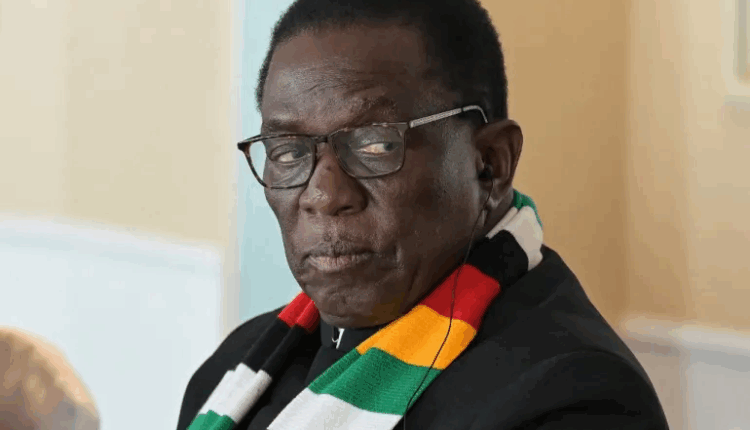Zimbabwe’s ruling party, ZANU-PF, has announced plans to begin the process of extending President Emmerson Mnangagwa’s term in office by two more years.
If successful, this move would allow him to remain in power until 2030.
The proposal was approved on Saturday during the party’s annual conference held in Mutare, a city in eastern Zimbabwe. According to Justice Minister and ZANU-PF’s legal secretary, Ziyambi Ziyambi, delegates at the conference directed the government to start drafting a law to amend the Constitution.
Under the current Constitution, President Mnangagwa, who is 83 years old, is required to step down in 2028 after serving two elected terms. Legal experts explain that extending his rule would require a constitutional amendment and possibly a national referendum.
Delegates at the conference cheered and applauded when the motion was passed, showing strong support within the ruling party. ZANU-PF, which has ruled Zimbabwe since independence in 1980, holds a majority in parliament, giving it enough power to push the proposal forward. However, some insiders believe that the amendment could face legal challenges if it proceeds.
Although Mnangagwa has often described himself as a “constitutionalist” who has no desire to stay in power beyond his term, his loyalists have been quietly campaigning for the extension since the disputed 2023 election. Meanwhile, a group within ZANU-PF loyal to Vice President Constantino Chiwenga strongly opposes the idea.
One of Chiwenga’s supporters, Blessed Geza, a veteran of Zimbabwe’s liberation war, has openly criticised the proposal through YouTube livestreams that attract thousands of viewers. Despite calls for public demonstrations, there has been little response, mainly due to heavy police presence in the capital, Harare, and other cities.
During his closing remarks at the conference, President Mnangagwa did not comment on the proposal. Vice President Chiwenga has also remained silent on both the extension plan and the public protests.
Mnangagwa became president in 2017 after longtime leader Robert Mugabe was removed from power. At that time, he promised to bring democratic and economic reforms to Zimbabwe. However, his administration has since been criticised for the country’s worsening economic situation, which includes high inflation, unemployment, and widespread corruption. Critics also accuse ZANU-PF of suppressing opposition voices, controlling the courts, and turning elections into unfair processes rather than true democratic events.
Opposition leaders have vowed to challenge any attempt to amend the Constitution. “We will defend the Constitution against its capture and manipulation to advance a dangerous unconstitutional anti-people agenda,” opposition lawyer Tendai Biti said in a statement on X (formerly Twitter).
Meanwhile, police arrested ten elderly activists in Harare on Friday for allegedly planning a protest demanding President Mnangagwa’s resignation. The activists, mostly in their 60s and 70s, were charged with attempting to incite “public violence” and are awaiting a bail hearing scheduled for Monday. Earlier this year, nearly 100 young protesters were detained under similar charges.
The debate over Mnangagwa’s possible term extension has revealed growing divisions within ZANU-PF. One faction supports the president’s continued rule until 2030, while another faction is quietly backing Vice President Chiwenga as the next leader.
Source: Aljazeera


Comments are closed.